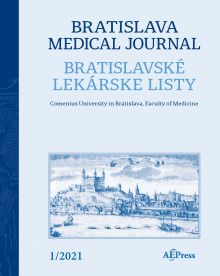Journal info
|
||||
Select Journal
Journals
Bratislava Medical Journal 2024 2023 2022 2021 2020 2019 2018 2017 2016 2015 2014 2013 2012 Ekologia - Ecology Endocrine Regulations General Physiology and Biophysics Neoplasma Acta Virologica Studia Psychologica Cardiology Letters Psychológia a patopsych. dieťaťa Kovove Materialy-Metallic Materials Slovenská hudba 2025Webshop Cart
Your Cart is currently empty.
Info: Your browser does not accept cookies. To put products into your cart and purchase them you need to enable cookies.
Bratislava Medical Journal Vol.118, No.7, p.408-416, 2017 |
||
| Title: The impact of sleep deprivation on hippocampal-mediated learning and memory in rats | ||
| Author: M. Saygin, M. F. Ozguner, O. Onder, D. K. Doguc, I. Ilhan, Y. Peker | ||
| Abstract: BACKGROUND: To examine the impact of different types of sleep deprivation on hippocampal-mediated learning and memory in rats. METHODS: Forty-eight Sprague-Dawley male rats were randomly assigned to 1 of 4 equal-size groups: (1) 12 hours of sleep per day (control). (2) total sleep deprivation (TSD), (3) rapid eye movement (REM) deprivation (RD), and (4) sleep restricted to 4 hours per day (SR). All rats were subjected to swimming training in the Morris water maze (MWM). At the end of the experiments, the rats were decapitated, and hippocampus tissue was analyzed for several neurotransmitters and receptors. RESULTS: The time spent at the target quadrant increased from 20.2 to 30.0 seconds in the control group on the third day of the experiment, whereas corresponding values increased from 20.2 to 21.8 seconds in the TSD group, 22.1 to 25.4 seconds in the RD group, and 21.2 to 32.0 sec in the SR group (p = 0.026). On the seventh day of the experiment, the values decreased to 25.0 seconds in controls, 22.5 in the RD group, and 23.6 in the SR group (p = 0.045). The TSD group demonstrated significant decreases in glutamate and serotonin levels compared with the control group. There was a significant increase in 5-HT2a receptor expression in all intervention groups compared with the controls. CONCLUSIONS: Our results of glutamate levels and 5-HT2a receptor expression in the hippocampus seem to be primarily involved in sleep and memory regulation (Tab. 2, Fig. 4, Ref. 59). |
||
| Keywords: sleep disorders, learning and memory, 5-HT2A, NMDA, α7, glutamate, serotonin, acetylcholine | ||
| Published online: 24-Jul-2017 | ||
| Year: 2017, Volume: 118, Issue: 7 | Page From: 408, Page To: 416 | |
| doi:10.4149/BLL_2017_080 |
||
|
|
 download file download file |
|

